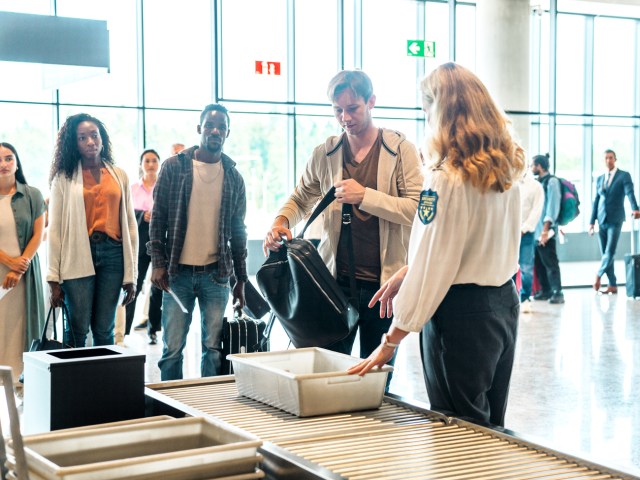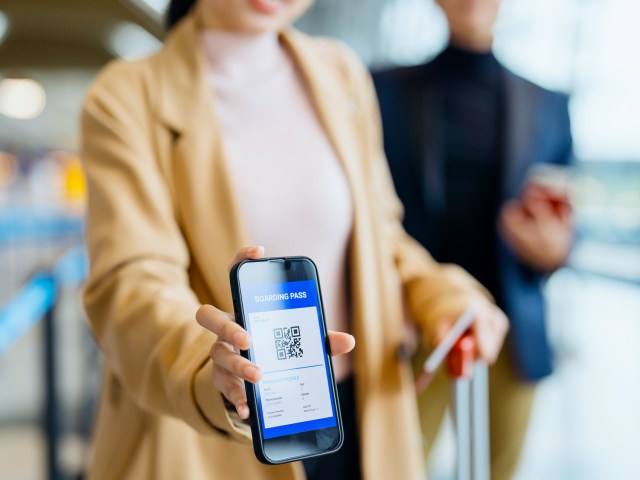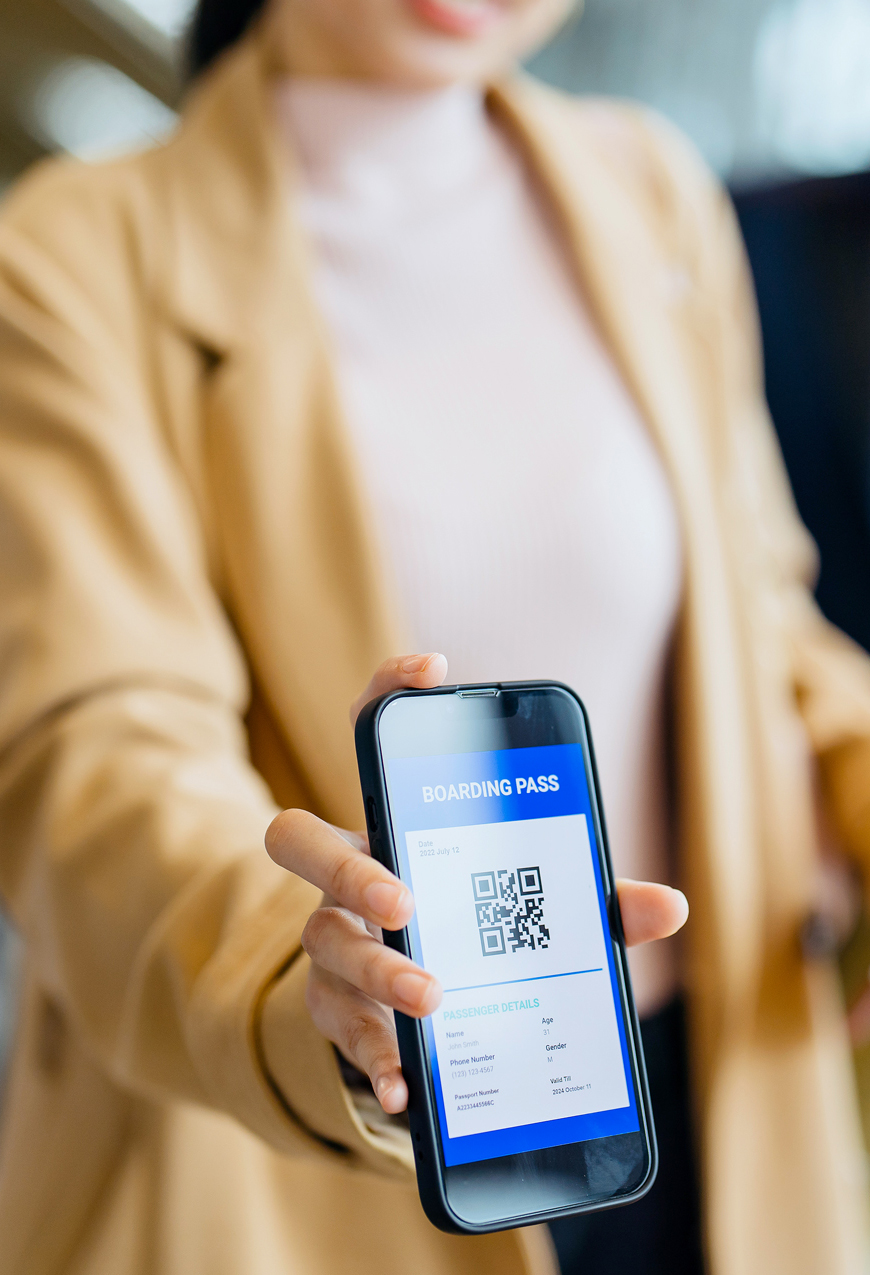Imagine this scenario: You’ve been waiting in a long security line at the airport, only to finally reach the front of the line and realize that you’ve misplaced your boarding pass. Suddenly, panic sets in — maybe you stuffed it into your luggage or dropped it at the ticket counter. In any case, these unpleasant situations can now be avoided at some airports thanks to a handy new program. Here’s why the TSA no longer requires certain travelers to present boarding passes at security checkpoints — and how you can take advantage of this new trick.
What Is Credential Authentication Technology?

Many U.S. airports have implemented a new security system called Credential Authentication Technology (CAT), which allows passengers to breeze past security without showing their boarding pass. All you’ll need to do is show the TSA agent photo identification. Eligible documents include a driver’s license, passport, passport card, Global Entry card, permanent resident card, or other government-issued ID. (Keep in mind that starting on May 7, 2025, your driver’s license will need to be REAL ID compliant for domestic air travel.) Once you’ve presented your ID, the agent places it into the CAT unit, which scans and analyzes it to ensure authenticity.
Each CAT unit is digitally connected with the airport’s “Secure Flight” database. This online database, which contains all the relevant details for every passenger booked to fly that day, confirms to the agent that you’re good to proceed. If you don’t have a valid ticket, then the database will alert the security officer. CAT units can also be used to determine a passenger’s pre-screening status, such as whether they have TSA PreCheck. This means you can stop worrying about fumbling multiple travel documents — just have your ID ready at the checkpoint, and you’ll be all set.
Which Airports Use CAT?

According to the TSA, as of mid-2024, 228 airports feature CAT units on-site, and that number will continue to rise as additional machines are installed. Unfortunately, the TSA no longer posts a publicly available list of these locations on their website, so it may be worth contacting the airport beforehand to check.
That said, many of the country’s most frequently traveled airports have already started using CAT. This includes Atlanta’s Hartsfield-Jackson Airport, Dallas/Fort Worth Airport, Denver Airport, Chicago O’Hare, LAX, and both JFK and LaGuardia airports in New York City. The list even includes airports as remote as Anchorage, Alaska. (Note, however, that the technology may not yet be available at all checkpoints within an airport, or you may be asked to show your boarding pass if the system isn’t working.)
Why You Should Still Hold Onto That Boarding Pass

While Credential Authentication Technology makes passing through security a breeze, you’ll still need to get your boarding pass when checking in with the airline. Once you reach the gate, come prepared with a physical or electronic boarding pass to scan before boarding the plane. While it may seem illogical that boarding passes are required in certain areas of the airport and not others, airlines don’t have access to CAT units like the TSA does, so this check-in process acts as an additional security step to ensure every traveler is in the right seat.
More from our network
Daily Passport is part of Optimism, which publishes content that uplifts, informs, and inspires.























